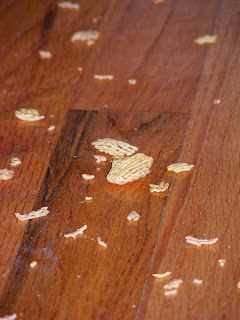From Dictionary.com:
Luddite: A member of any of the bands of English workers who destroyed machinery, especially in cotton and woolen mills, that they believed was threatening their jobs (1811–16); a person opposed to increased industrialization or new technology.
I am a self-confessed Luddite -- a dumb phone carrying, number two pencil wielding, video game eschewing, Kindle scoffing anachronism.
That's me.
A Luddite.
And happy to be so.
Except for the dumb phone. Which failed me time and again and frog-marched me -- reluctant and dragging my feet -- into the world of Smart Phones.
A friend told me a week or two ago about a younger child of hers who is struggling in school in much the same way that one of mine struggled in school. Like every good mother, she took a deep breath, dabbed her eyes, and logged on to Amazon hoping that a solution for all that ails would arrive on her doorsteps in two days, free shipping.
Been there, surfed that, placed the order.
She mentioned getting a few educational Leap Frog apps.
Now, you can't say this to a Luddite. Or to a Montessorian. Or to an English teacher.

It's nails on a chalkboard -- not to be confused with a dry erase marker on a smart-board -- to people who seize a low tech solution at every turn.
Let me digress for a moment. The further I get into this parenting gig, the less willing I am to put myself out there on any issue. I posted my little bit about children who struggle to read. No sooner had I hit "publish" then I began to think:
What in the world are you doing proffering an opinion on this subject? What makes you an expert? Why would anyone care what you think? Like Sergeant Schultz, my mantra is, "I know nothing . . . nothing!"
With that disclaimer in mind, I offer this thought: What middle class American kid needs more screen time?
Kids -- mine, yours, nearly everyone's -- need less screen time.

Let's pull the plug, let's toss the batteries, and let's pull out the stuff. Stuff. Yes, stuff. Real stuff. Pick it up, touch it, chew on it, run your fingers over it, stuff.
Maria Montessori -- she must have been a fellow Luddite -- believed in stuff. Real stuff. High quality stuff. Glass. Wood. Metal. She observed that children learn best through doing, not seeing or hearing or doing it through virtual reality. I had a child so adept at on-line baseball game, I once quipped to my husband, "I think he thinks he can play the real game." Seriously. I understood how the line between reality and virtual reality became blurred.
One of Montessori's approaches to learning the alphabet was to use letters made of sandpaper. Run your fingers over them, get the feel of it, real letters.
Even a Luddite like me concedes that some high tech toys are useful. When John began U.S. geography, I bought the puzzle, but I also let him have fun with an on-line game that kept score and had timers and other bells and whistles that added a little motivation. The Internet abounds with free typing tutors that make old school methods look pretty lame. High tech serves a useful purpose.
But then there's this:
I've been talking to my ninth grade English students about persuasive writing. And I tell them to avoid over-emotional language. School uniforms, summer school work, cursive handwriting -- all these may be, in your estimation, bad ideas, but they are not evil. Genocide, I tell them, is evil; school uniforms and cursive are not. The person who promotes penmanship is not Hitler, and the teachers who enforce the uniform policy are not the Gestapo.
That being said, the orange plastic contraption above is nothing short of an atrocity.
Turn off the screens and pull out the stuff.
Fellow Luddites, can I hear an amen?
.




















































